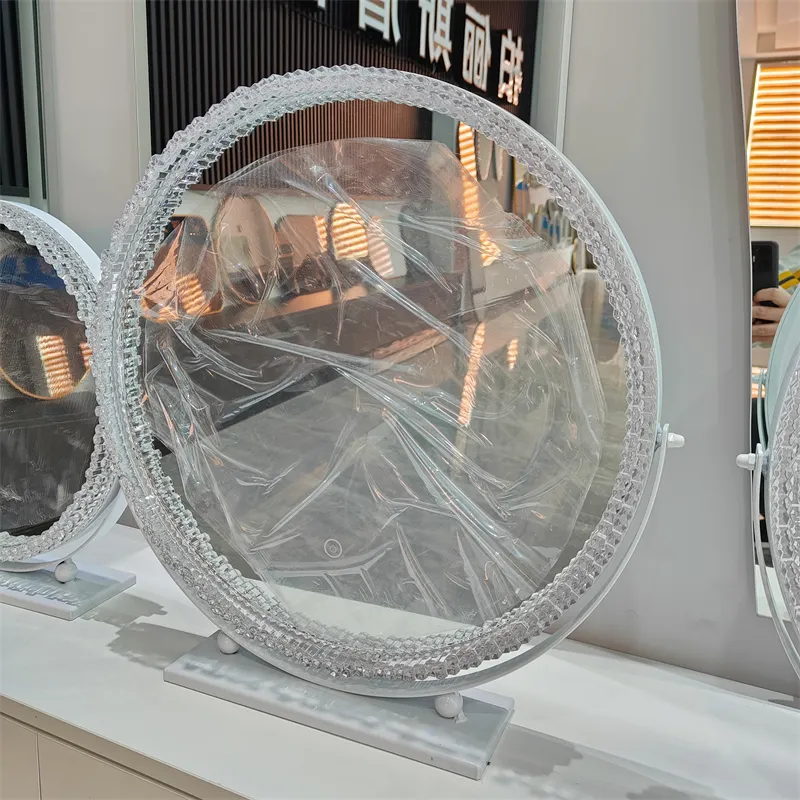Dec . 04, 2024 13:50 Back to list
Understanding the Properties and Applications of Fractured Laminated Glass
Understanding Broken Laminated Glass Causes, Effects, and Solutions
Laminated glass has become a popular choice in various architectural and automotive applications due to its unique safety and aesthetic properties. Composed of two or more layers of glass with an interlayer, usually made of a polymer like polyvinyl butyral (PVB), laminated glass plays a crucial role in ensuring safety and comfort. However, despite its enhanced durability, it is not immune to damage. This article explores the causes and effects of broken laminated glass, along with possible solutions to mitigate associated risks.
What is Laminated Glass?
Laminated glass is a type of safety glass that holds together when shattered, thanks to the interlayer that binds the layers of glass. This characteristic makes laminated glass an excellent choice for applications where safety is a priority, such as in car windshields, storefronts, and glass facades in buildings. The interlayer not only prevents the glass from breaking into sharp shards but also offers sound insulation and UV protection.
Causes of Breakage
Despite its durability, laminated glass can still break under certain conditions. The most common causes of breakage include
1. Impact Damage The most direct cause of broken laminated glass is impact from objects. Whether it’s a pebble flung up by a vehicle or an accidental collision in a public space, the force applied can exceed the glass's strength.
2. Thermal Stress Laminated glass is also sensitive to temperature variations. When one part of the glass heats up or cools down more rapidly than another, thermal stress can occur, potentially leading to cracks or breakage.
3. Manufacturing Defects Poor quality control during the manufacturing process can result in vulnerabilities within the glass. Small inclusions, air bubbles, or unevenly distributed interlayers can compromise integrity and lead to premature failure.
4. Improper Installation If laminated glass is installed incorrectly, it can be prone to breakage. For example, excessive pressure from framing or structural components can lead to localized stress points.
5. Environmental Factors Factors such as extreme weather conditions, exposure to salts, or pollutants can compromise the glass structure over time, leading to degradation and eventual breakage.
Effects of Broken Laminated Glass
When laminated glass breaks, the effects can be multifaceted and significant
. Although the interlayer holds the pieces together, it does not eliminate all risksbroken laminated glass

1. Safety Hazards While laminated glass is considered safer than regular glass, broken pieces can still pose risks. Sharp edges may cause cuts or injuries, especially in high-traffic areas.
2. Aesthetic Damage Cracks and breaks compromise the visual appeal of glass installations, leading to a decrease in the overall aesthetic of buildings or vehicles.
3. Functional Impairments Broken laminated glass in vehicles can obstruct the driver’s view, increasing the risk of accidents. In buildings, it can impede thermal and acoustic insulation properties.
4. Repair and Replacement Costs Broken laminated glass necessitates repairs or complete replacements, which can incur substantial costs, particularly if specialized glass is involved.
Solutions and Mitigation
To mitigate the risks associated with broken laminated glass, several strategies can be implemented
1. Regular Inspections Routine inspection of glass installations can help identify any signs of damage or wear early, allowing for timely repairs.
2. Quality Installation Employing skilled professionals for installation ensures that laminated glass is fitted properly, minimizing the risk of breakage due to improper handling.
3. Using Enhanced Glass Types Advanced variations of laminated glass, such as those reinforced with additional materials, can increase resistance to impact and temperature changes.
4. Public Awareness Educating the public about the properties and vulnerabilities of laminated glass can encourage careful treatment and reduce accidental damage.
5. Insurance and Warranties Having proper insurance or warranties can help manage costs associated with repairs or replacements when damage occurs.
Conclusion
Broken laminated glass, while a safety improvement over traditional glass, still presents challenges that must be addressed. Understanding the causes and effects of breakage—and implementing appropriate solutions—can enhance safety, reduce costs, and prolong the life of these vital materials in our built environment. As technology advances, further innovations in laminated glass will continue to improve its durability and performance, making it an even more reliable option for future applications.
-
Safety and Style with Premium Laminated Glass Solutions
NewsJun.24,2025
-
Reinvents Security with Premium Wired Glass
NewsJun.24,2025
-
Premium Float Glass Line for Modern Architecture
NewsJun.24,2025
-
Low Emissivity Glass for Energy-Efficient Architecture
NewsJun.24,2025
-
High-Performance Insulated Glass Solutions for Modern Architecture
NewsJun.24,2025
-
Elevates Interior Style with Premium Silver Mirror
NewsJun.24,2025
Related PRODUCTS














